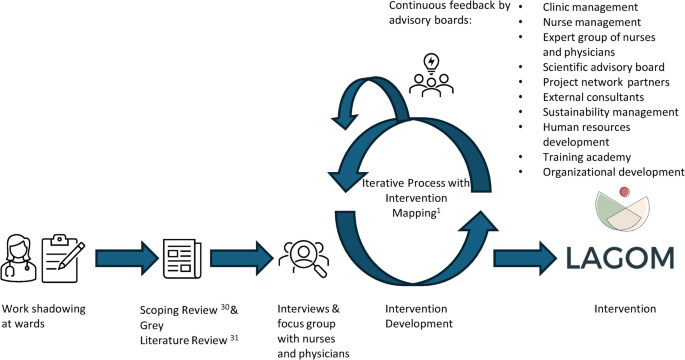

- Type 1 diabetes is an autoimmune disease that affects the pancreas and insulin production.
- Previous studies show that people with type 1 diabetes are at an increased risk for several health conditions, including eye problems and heart disease.
- Researchers from McLean Hospital believe the naturally occurring glucose level fluctuations in people with type 1 diabetes may also affect their cognitive function, which could impact Alzheimer’s disease risk.
As of 2021, about
Unlike type 2 diabetes, type 1 diabetes is an
Previous studies show that people with type 1 diabetes are at an increased risk for several health conditions including
Now, researchers from McLean Hospital — a member of Mass General Brigham — believe the naturally occurring glucose level fluctuations in people with type 1 diabetes may impact how well their brains work.
The study was recently published in the journal
According to Dr. Zoë Hawks, director of the Computational Modeling & Cognitive Dynamics Program at McLean Hospital, instructor in psychiatry at Harvard Medical School, and lead author of this study, doctors and researchers need to have a better understanding of how type 1 diabetes affects the brain.
“Individuals with type 1 diabetes are at increased risk for cognitive impairment, and cognitive variability is an important indicator of long-term brain health,” Dr. Hawks explained to Medical News Today. “Understanding how glucose impacts cognitive variability in the context of clinical risk factors — for example, microvascular complications — may support the development of new tools to evaluate and monitor brain health in type 1 diabetes.”
Past studies have linked type 1 diabetes to cognitive issues. For example, a study published in March 2022 discovered that older adults with type 1 diabetes had significantly
Research published in November 2018 found that older adults with type 1 diabetes who had
A study published in July 2021 reported that severe
For this study, Dr. Hawks and her team recruited 200 people with type 1 diabetes who used digital glucose sensors and smartphone-based cognitive tests to collect glucose level and cognition data three times a day for 15 days.
“Type 1 diabetes is characterized by elevated glucose and increased glucose variability,” Dr. Hawks said.
“Previous laboratory studies have shown that extreme glucose levels impair cognition. However, due to technological limitations, it’s historically been difficult to study the impact of glucose on cognition outside of the laboratory. We were interested in using new, remote data collection technologies to understand how glucose impacts cognition in everyday life and whether this effect differs from person to person,” she explained.
When analyzing the collected data, scientists found that the cognitive function of processing speed — how quickly the brain receives, processes, and responds to received information — was impaired when a person’s glucose levels were either considerably higher or lower than usual. However, this was not true for another cognitive function called sustained attention — the ability to focus on a specific task for a long time.
“This finding was unexpected, but not altogether surprising,” Dr. Hawks said.
“It may reflect the fact that glycemic variability impacts sustained attention and processing speed on different timescales. For example, recent work by Pyatak and colleagues suggests that sustained attention varies in relation to longer-term effects of glucose — e.g., over hours, days — whereas we found that processing speed is sensitive to current glycemic status,” she said.
Study researchers also discovered that a study participant’s peak cognitive performance coincided with glucose levels being slightly higher than their usual range. However, their performance dropped if their glucose levels continued to rise.
“This was surprising. We know high glucose is bad for long-term brain functioning and cognitive health, but it looks like — at least in the short term — having glucose that is moderately high is associated with faster thinking and response times in people with type 1 diabetes.”
— Dr. Zoë Hawks
“This is important for patients to know because it means that if someone is working hard to lower their blood glucose (to) a healthier range, they might notice that their thinking is a little slower than usual. We expect that these are short-term effects as their body adjusts to a lower glucose level. People with higher average glucose had slower average thinking speed than people with lower average glucose,” Dr. Hawks explained.
Dr. Hawks said there are two big takeaways from this study that medical professionals should be aware of.
“First, the same glucose level could be associated with thinking difficulties for one person and not for another person, supporting an individualized approach that acknowledges that no two patients are exactly alike in how their glucose impacts their cognition,” she said.
“Second — contrary to what many of us believed — mild to moderately high glucose did not seem to be associated with thinking difficulties,” Dr. Hawks continued. “If a person with type 1 diabetes was about to engage in high stakes testing, for example, and their glucose was a little bit high, they shouldn’t worry about it for that test, as this range was associated with good cognitive functioning overall.”
After reviewing this study, Dr. Swapnil Patel, vice chairman of the Department of Medicine at Hackensack Meridian Jersey Shore University Medical Center in New Jersey, told MNT it is fascinating to see how glycemic control can impact the brain in so many different ways.
“This study verifies that there is much to learn about how type I diabetes and glycemic control can affect the brain in the short term and long term,” Dr. Patel continued. “It is also great to see how the advent of the
“This article demonstrates the importance of glycemic control in daily brain health. Additional studies would be important to further validate this information. It also would be important to see how the use of continuous glucose monitor technology can further be leveraged to learn more about glycemic control and its impact.”
— Dr. Swapnil Patel
MNT also spoke with Dr. Jennifer Cheng, section chief of Endocrinology at Hackensack Meridian Jersey Shore University Medical Center in New Jersey, about this research.
Dr. Cheng said this study is reflective of what is seen in clinical practice.
“The study mentions that perhaps patients habituate and adapt to a certain sugar level,” she continued. “It would be interesting to see additional research on what sugar level patients get used to and how their cognitive performance changes over time after getting sugars under better glycemic control.”
“It would be interesting to see if the best cognitive performance is due to patients’ feelings or due to actual performance. Another area of research that would be interesting to see the results is to what degree of brain damage is occurring in our patients with diabetes who are having recurrent hypoglycemia,” Dr. Cheng added.
link


:max_bytes(150000):strip_icc()/VWH-GettyImages-2194720794-58e24e56598e43d293793e433166d67f.jpg)





